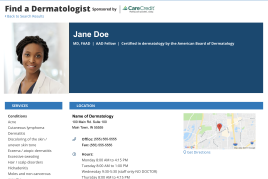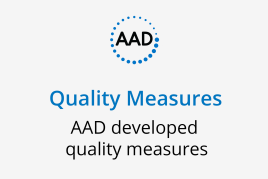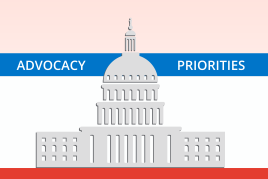Taking psoriasis by the throat
 By Warren R. Heymann, MD
By Warren R. Heymann, MDNov. 2, 2016
Once the transient satisfaction of explaining the association of streptococcal infections with psoriasis (guttate, vulgaris, or pustulosis palmaris et plantaris) passes, the reality of treatment must be addressed. Of course we’ll prescribe the usual regimens — topical steroids, phototherapy, retinoids, biologics, etc., but targeting the streptococcal trigger should be considered.
I am not aware of any definitive study that supports the use of antibiotics for treating guttate psoriasis. Indeed, in a study of 43 patients with guttate psoriasis divided into three treatment groups — no treatment, erythromycin, or penicillin — there was no statistically significant difference between the groups (1). That being said, I imagine I am not alone in having given patients an empiric trial of antibiotics. I have no idea if those courses were beneficial as they were given concurrently with other therapies.
If recalcitrant, recurrent psoriasis appears to correlate with repeated episodes of strep throat, the question of performing a tonsillectomy may be raised. Molecular studies have shown that the tonsils harbor autoreactive T cells that can enter the circulation and home to the skin, suggesting that tonsillectomies may reduce the number of these cells (2).
Rachakonda et al reviewed 20 articles including 545 patients with psoriasis who were evaluated for or underwent tonsillectomy. Of 410 reported cases of patients who had a tonsillectomy, 290 experienced improvement of their psoriasis. Although some of these patients experienced sustained improvement in psoriasis, others relapsed after the procedure. The authors opined that tonsillectomy may be a potential option for patients with recalcitrant psoriasis associated with episodes of tonsillitis. They concluded that studies with long-term follow-up are warranted to determine more clearly the extent and persistence of benefit of tonsillectomy (3).
Recently, a higher TH17 response was observed in circulating memory T cells isolated from patients with flares associated with a streptococcal tonsillitis and with the HLA-Cw6 allele (4). In a prospective case series of 28 tonsillectomized patients with plaque psoriasis followed for 24 months, it was demonstrated that after tonsillectomy, HLA-Cw*0602 homozygotes showed significantly more improvement, compared with heterozygous and HLA-Cw*0602-negative patients. The Psoriasis Area and Severity Index score was reduced by 82% in the homozygous patients compared with 42% and 31%, respectively (P < .001), Psoriasis Disability Index score improved by 87% compared with 38% and 41%, respectively (P < .001), and Psoriasis Life Stress Inventory score was 82% reduced compared with 60% and 54%, respectively (P < .001). The homozygotes more often had psoriasis onset associated with a throat infection (P = .007) and an increased frequency of streptococcal throat infections per lifetime (P = .038). The authors concluded that homozygous HLA-Cw*0602 carriage in plaque psoriasis may predict a favorable outcome after tonsillectomy (5).
When I was a child, I recall watching an episode of “Leave it to Beaver” where the Beaver’s father, Ward Cleaver, described his experience with a tonsillectomy, telling the Beaver that the procedure is followed by all the ice cream you could eat — sounded good to me! In reality, it wasn’t so pleasant for my daughter Deborah. Complications of tonsillectomies, including hemorrhage, infection, vocal changes, and laryngospasm, amongst others, must be considered. The procedure should be reserved for those with severe, recalcitrant psoriasis that it associated with chronic tonsillitis. Perhaps profiling for HLA-Cw*0602 status can help guide us in determining which psoriatic patients will truly benefit from a tonsillectomy.
1. Dogan B, et al. Antistreptococcal treatment of guttate psoriasis: A controlled study. Int J Dermatol 2008; 47: 950-2.
2. Wu W, et al. Tonsillectomy as a treatment for psoriasis: A review. J Dermatol Treat 2014; 25; 482-6.
3. Rachakonda TD, et al. Effect of tonsillectomy on psoriasis: A systematic review. J Am Acad Dermatol 2015; 72: 261-75.
4. Ruiz-Romeu E, et al. Streptococcus pyogenes-induced cutaneous lymphocyte antigen-positive T cell-dependent epidermal activation triggers TH17 responses with guttate psoriasis. J Allergy Clin Immunol 2016; 138; 491-99.
5. Thorliefsdottir RH, et al. HLA-Cw6 homozygosity in plaque psoriasis is associated with streptococcal throat infections and pronounced improvement after tonsillectomy: A prospective case series. J Am Acad Dermatol 2016; 75; 889-86.
All content found on Dermatology World Insights and Inquiries, including: text, images, video, audio, or other formats, were created for informational purposes only. The content represents the opinions of the authors and should not be interpreted as the official AAD position on any topic addressed. It is not intended to be a substitute for professional medical advice, diagnosis, or treatment.
DW Insights and Inquiries archive
Explore hundreds of Dermatology World Insights and Inquiries articles by clinical area, specific condition, or medical journal source.
All content solely developed by the American Academy of Dermatology
The American Academy of Dermatology gratefully acknowledges the support from Incyte Dermatology.
 Make it easy for patients to find you.
Make it easy for patients to find you.
 Meet the new AAD
Meet the new AAD
 2022 AAD VMX
2022 AAD VMX
 AAD Learning Center
AAD Learning Center
 Need coding help?
Need coding help?
 Reduce burdens
Reduce burdens
 Clinical guidelines
Clinical guidelines
 Why use AAD measures?
Why use AAD measures?
 Latest news
Latest news
 New insights
New insights
 Combat burnout
Combat burnout
 Joining or selling a practice?
Joining or selling a practice?
 Advocacy priorities
Advocacy priorities
 Promote the specialty
Promote the specialty

